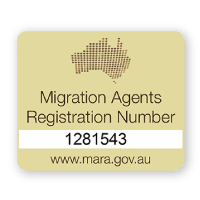What Are the Requirements to Work and Live in Australia?
If you’re considering moving to Australia for work or to settle, it’s important to understand that Australia’s migration system is not one-size-fits-all. The process is governed by complex criteria, and there isn’t a single path that suits everyone. The requirements vary depending on factors such as your profession, age, financial situation, experience, level of english and other.
While Australia is known for its robust economy and high quality of life, moving here involves navigating a range of visas, each with its specific conditions. In this post, we will outline the general requirements, while emphasizing that the journey to living and working in Australia is unique to each individual.
Key Visa Categories
1 – Skilled Migration Visas
One of the most common ways to live and work in Australia is through the skilled migration program. This is aimed at people with qualifications and experience in high-demand industries. To be eligible, applicants must first have their occupation listed on one of Australia’s Skilled Occupation Lists (SOL). Additionally, they must meet points-based requirements, which assess age, education, work experience, and English language proficiency.
The most common skilled migration visas include:
- Subclass 189 (Skilled Independent Visa) – for those who don’t need sponsorship by an employer or family member.
- Subclass 190 (Skilled Nominated Visa) – requires nomination by an Australian state or territory.
- Subclass 491 (Skilled Regional Visa) – encourages skilled workers to live and work in regional Australia
2 – Employer-Sponsored Visas
If you’ve been offered a job in Australia, employer-sponsored visas might be the most suitable pathway. These visas are for those who have secured employment with an Australian company willing to sponsor their application. Common visas in this category include:
- Subclass 482 (Temporary Skill Shortage Visa) – allows skilled workers to live and work in Australia for up to four years.
- Subclass 186 (Employer Nomination Scheme) – offers a permanent residency pathway for workers with a permanent job offer.
Both visas require employers to demonstrate that they could not find a suitable Australian candidate for the position.
3 – Family and Partner Visas
If you have immediate family members or a partner who is an Australian citizen or permanent resident, they may be able to sponsor you to come and live in Australia. The family migration stream includes visas such as:
-
- Subclass 820/801 (Partner Visa) – for spouses or de facto partners.
- Subclass 101/102 (Child Visas) – for children of Australian citizens or permanent residents.
4- Student Visas
Many people first come to Australia on a student visa. A Subclass 500 (Student Visa) allows individuals to study full-time in an accredited course and potentially work part-time during their studies. After completing their education, graduates may be eligible for a Temporary Graduate Visa (Subclass 485), which lets them work in Australia for a limited period. This can be a stepping stone toward permanent residency if they later meet the criteria for skilled migration.
Other Considerations
-
Health and Character Requirements Regardless of the visa type, all applicants must meet Australia’s health and character requirements. This involves medical examinations to ensure you meet public health standards, and police checks to verify that you have a clean criminal record.
-
Financial Stability For some visa categories, particularly student and temporary visas, applicants must demonstrate that they have sufficient funds to support themselves during their stay. Proof of financial stability can include bank statements, scholarships, or sponsorship from family.
Wanting to know more? If you would like to book a consultation with one of our agents, just call us on (08) 6117 4152 or click on this following like to book your appointment https://www.getyourvisa.com.au/book-a-consultation/.
We assist employers and visa applicants to define their journey in the Migration process to Australia.







